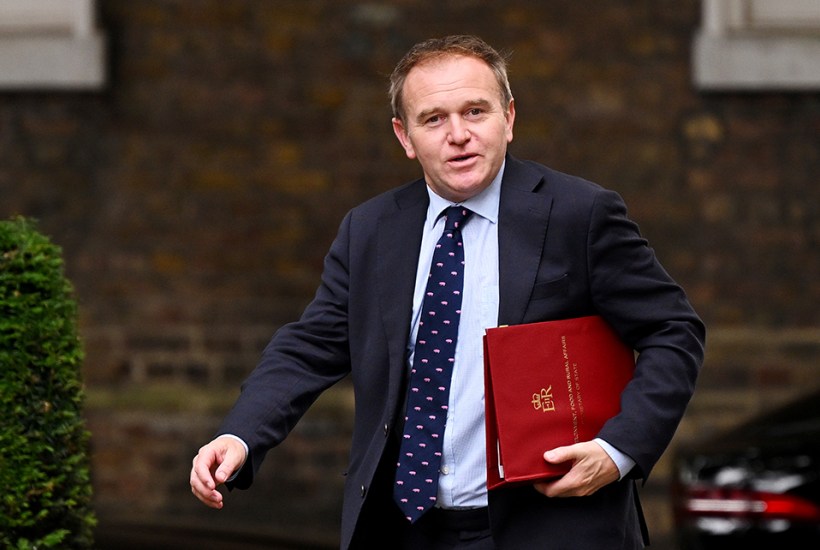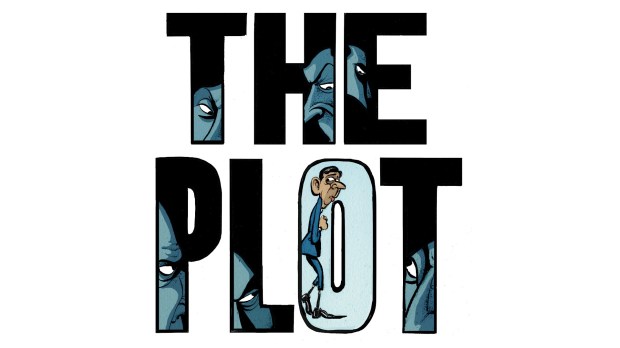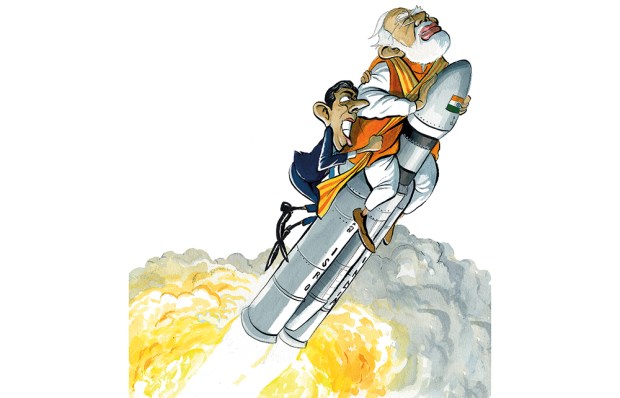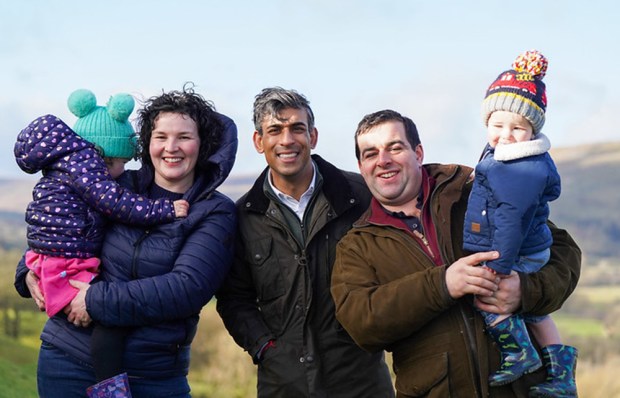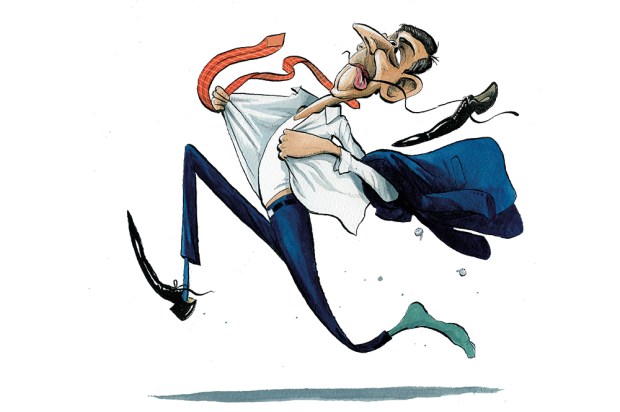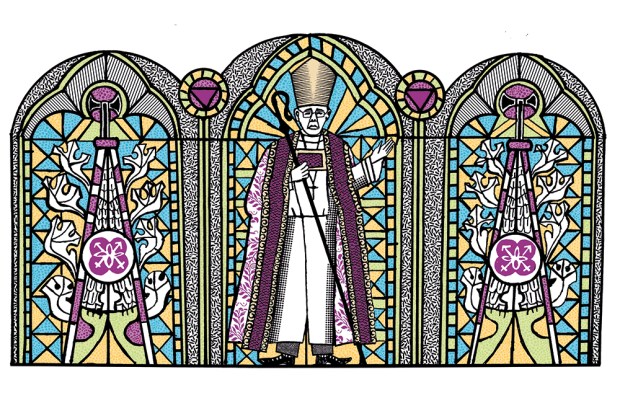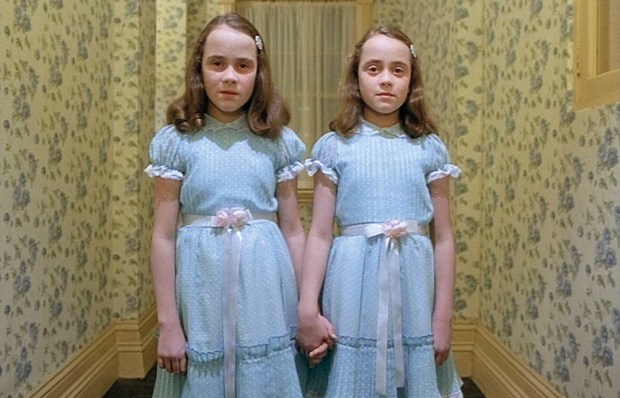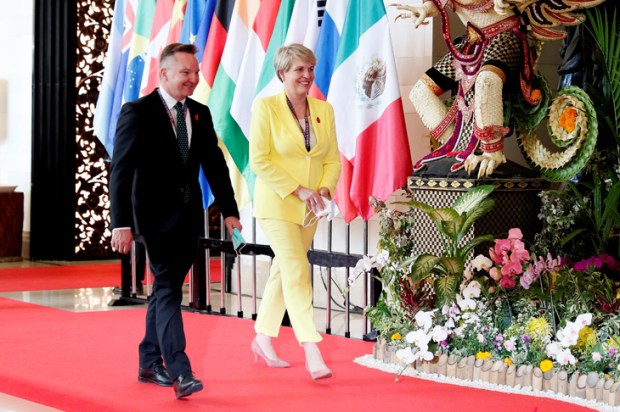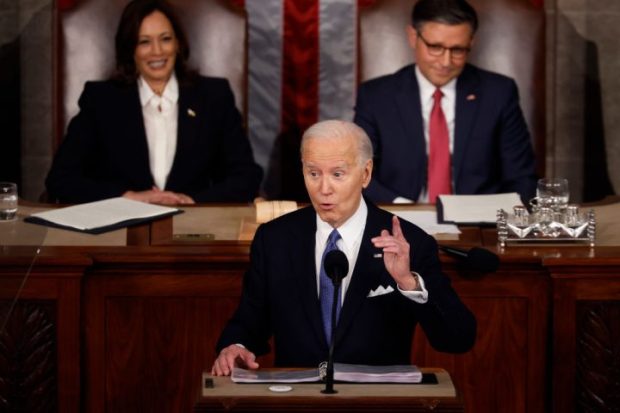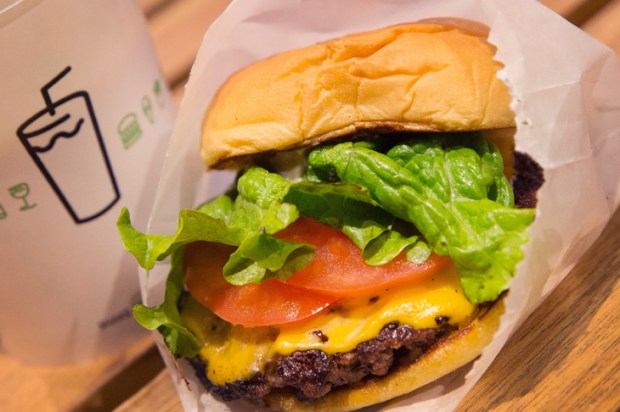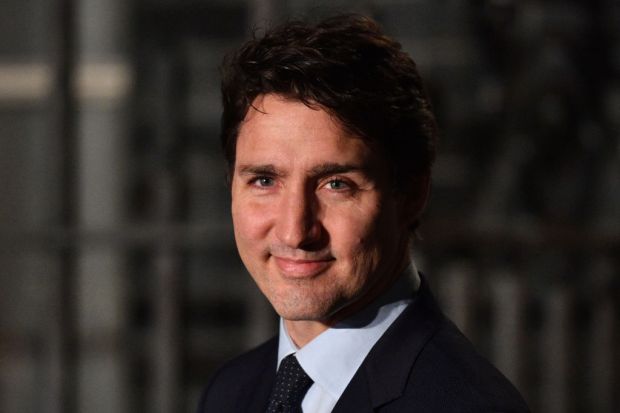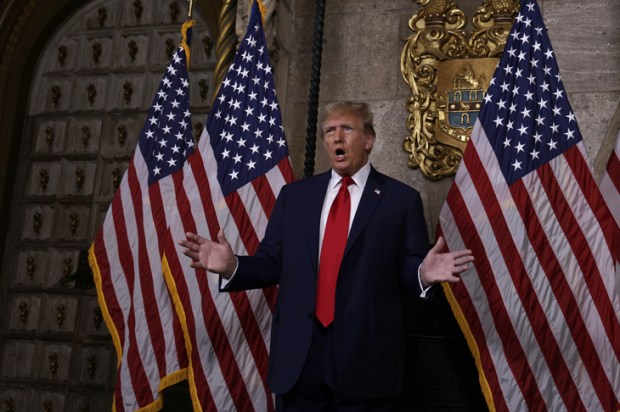Is Brexit failing? Those who believe it is point to George Eustice, the former Tory environment secretary, who told the Commons last week that the Australia trade deal was a dud. Here was a Brexiteer, a one-time Ukip candidate, saying that the biggest trade deal of the Boris Johnson years was deeply flawed – a belief Rishi Sunak is understood to share.
‘I don’t regret it,’ says Eustice as we sit in Portcullis House. ‘It was just not actually a very good deal.’ The agreement struck by Liz Truss, then the trade secretary, gave Australia and New Zealand unlimited access to the UK market for its beef and sheep while Australia bans the import of British beef. ‘Too much’ was given away under the agreement, says Eustice, whose nine years in government ended when Truss was elected. He fears that British beef could be undercut by Australasian hormone-treated beef.
In the Commons, Eustice claimed that Truss ‘shattered’ the UK’s negotiating position and that Crawford Falconer, the trade department’s top civil servant, ought to be sacked, having accepted concessions that ‘were against UK interests’. Eustice said that now he is on the backbenches he ‘no longer has to put such a positive gloss on what was agreed’, which is putting it mildly.
When we met two days after that speech, I asked him what the reaction had been. ‘I’ve had a large number of Conservative MPs say that it needed saying and we must not repeat this mistake,’ he replies. Eustice says he spoke out because he fears the same mistake might be made under Sunak. Britain is in the final stages of talks for the Comprehensive and Progressive Agreement for Trans-Pacific Partnership (CPTPP), and Eustice says he is ‘genuinely worried’ that it will go the same way as the Australia deal. ‘I felt it was important that I fired a bit of a warning shot, so that they recognise that it’s not a cost-free option to throw farming under the bus.’
Sunak, who has taken a keen interest in farming since being elected to a rural Yorkshire constituency, has been saying similar things. During the summer leadership race, he launched a coded attack on the Australia deal, promising to ‘make sure that farmers are a priority in trade deals’. Sunak’s main problem is understood to be about timing: if UK negotiators rush to produce a Brexit ‘win’ then a bad deal is likely to result. He has purposefully set no deadline for either the India or CPTPP deals.
But there is a deeper fault line in Toryism: free trade vs protectionism. Eustice, Michael Gove and Zac Goldsmith were dubbed ‘the axis of evil’ by allies of Truss as the trio fought to maintain animal welfare and farming standards. Within cabinet, much of the Brexit discussion last year was dominated by rows over Truss’s Australia deal. Johnson and the rest of the cabinet eventually backed her. ‘There was an internal conflict in Boris Johnson’s own mind,’ says Eustice. ‘He didn’t want to let farmers down but he also had some quite gravitational pull to the concept of free trade.’
Eustice served as an agriculture minister for almost nine years but farming for him isn’t just a policy area – it’s in his blood. He comes from a long-established Cornish farming family. How did it feel to serve in a government committed to a trade deal that would damage much of the industry? He says he felt conflicted. As environment secretary, he said, he ‘had to go to agricultural shows and defend the collective government position against attack. I was the one who would end up at the despatch box defending a position that I was uncomfortable with’.
Why did he not resign? He points to concessions he secured – sanitary protections, gradual liberalisation over 15 years, and other safeguards – but he says ultimately he was outmanoeuvred. ‘The truth about being a cabinet minister is you fight the good fight, you reach a settlement with your colleagues and you move on to the next battle. There were dozens of compromises that I reconciled myself to that I will never talk about in public. This particular one stuck in the throat quite a bit because I think it was probably the wrong decision for the country. But the consensus in cabinet was against me and I reconciled myself to that.’
To Eustice, Johnson’s ‘global Britain’ agenda was never a major factor in why the country voted to leave. ‘There has been a tendency in certain parts of the Conservative party to exaggerate the trade dimension as being what Brexit was about.’ He recalls discussions during the referendum with the Vote Leave supremo Dominic Cummings. Campaign focus groups showed that ‘the public wanted to take back control and in some ways the anxiety that the public felt about the EU was a sort of subset of a wider anxiety about globalisation’. Vote Leave’s messaging subsequently reflected this, with little emphasis on free trade.
‘The big problem came when May came in, because she had what I describe as a Remainer’s interpretation of Brexit which is – it’s all about trade deals and it’s all about immigration and that’s why people voted leave.’ Truss, by implication, also never properly understood Brexit.
That said, Eustice has ‘no regrets’ about the referendum. ‘I always wanted us to have an independent trade policy. I’m making a point that the UK has a negotiating hand which is strong enough for us to negotiate trade deals favourable to the UK. I just don’t think we did that successfully with Australia.’ All Tory MPs believe in trade liberalisation, he says. The difference is between those ‘like Jacob Rees-Mogg and Liz Truss who take a very Adam Smith view that we should almost unilaterally remove tariffs’ and ‘those people like me who take a slightly more pragmatic approach’.
So as Eustice contemplates life on the back benches after ‘a good innings’ in government, he intends to keep making this point. It’s a conundrum the Tories have yet to solve: what do they think about free trade? How best to balance the interests of producers and consumers? And what compromises will be acceptable in the brave new post-Brexit world?
The post Trading places: George Eustice on Brexit, Sunak and the Australian deal appeared first on The Spectator.
Got something to add? Join the discussion and comment below.
You might disagree with half of it, but you’ll enjoy reading all of it. Try your first month for free, then just $2 a week for the remainder of your first year.


